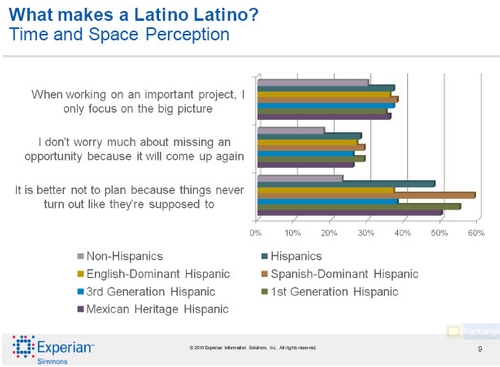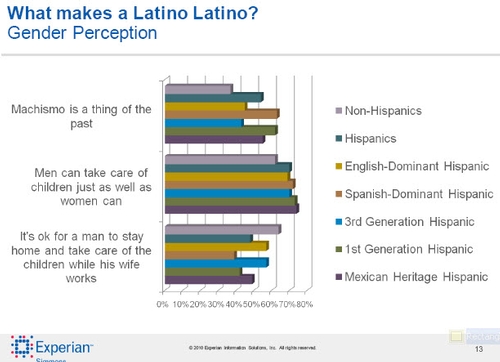When it comes to cultural identities, Latinos in the U.S. share different beliefs and opinions compared to non-Hispanics. A study conducted by Experian Simmons set out to measure Hispanic traditions.
Some of the largest differences between Hispanics and non-Hispanics occur on questions related to family. Hispanic Americans are less likely than non-Hispanics to agree that children should leave their parents’ home when they complete their schooling. U.S. Hispanics are also less likely than non-Hispanics to challenge their parents or other elder family members by expressing disagreement.

The report also revealed that Hispanics are less likely to believe that they need a calendar to organize themselves. In fact, nearly half of Hispanic Americans say that it’s better to not even bother planning because things never turn out the way they’re supposed to. Fewer than 25 percent of non-Hispanic adults say the same. First generation Hispanics and Spanish-dominant Hispanics are most likely to feel this way.
And, being late for social occasions bothers Hispanics much less than it does non-Hispanics. However, Hispanics do make an extra effort to be early to work appointments.

Gender perceptions offer a few surprises. Latinos are more likely to believe that machismo is a thing of the past. This belief is strongest among Spanish-dominant Hispanics and first generation Hispanic immigrants. Not only do Hispanic adults believe that “machismo” is a thing of the past, they believe that men are as capable as women when it comes to taking care of children.
Despite the belief that men are equally capable of taking care of children, Hispanic adults are less likely to say that it’s okay for a man to stay at home and take care of the children while his wife works. Spanish-dominant Hispanics and first generation Hispanic immigrants are the least likely to support this belief.
Source: Experian Simmons, “The 2010 Latino Cultural Identity Consumer Report,” October 7, 2010.